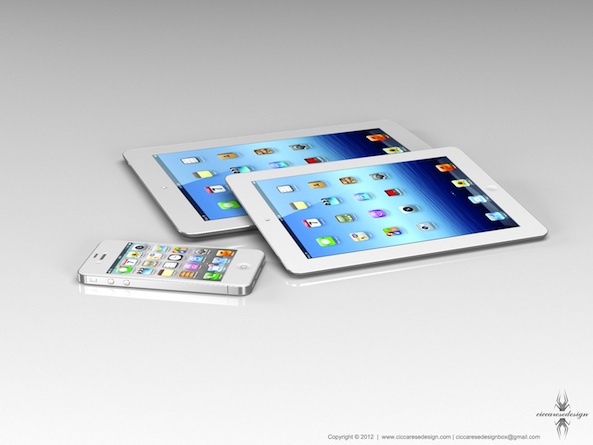As rumors concerning an alleged $200 iPad mini have lately begun picking up considerable steam, industry sources from Apple’s supply chain in Asia have chimed in with claims that Taiwanese suppliers are building specialized plants to meet Apple’s ever-growing demand for parts and components that go into its iPhone and iPad.
The sources also mention these new production facilities are being constructed in preparation of the iPad mini, said to feature a 7.85-inch display and a low price close to $200.
Apple, which shipped nearly 50 million smartphones and tablets in the first quarter of this year, is responsible for a big chunk of its suppliers’ profits.
The Cupertino company controls an estimated two-thirds of the tablet market, though Apple’s lead is believed to diminish as Windows 8-based tablets and those running Android 4.0 Ice Cream Sandwich arrive later this year…
DigiTimes has the story:
Manufacturers such as Catcher Technology, Taiwan Surface Mount Technology (TSMT), Radiant, and Coretronic are planning to construct plants in preparation of Apple’s new 7.85 inch iPad as well as increasing orders with the company’s next generation iPhone, according to sources.
One thing about DigiTimes: they’re a mixed bag of facts and pure fiction when it comes to Apple rumors. That said, I’m glad someone has finally fact-checked DigiTimes.
In related news, brand notebook vendors are said to be shifting their orders for notebook panels from Samsung Electronics to Chimei Innolux as Samsung has been prioritizing iPad panel production over regular notebook panels because tablet panels offer higher margins.
Samsung is believed to be the prime supplier of Retina panels for the new iPad.
Also worth noting: Hewlett-Packard just unveiled a refreshed lineup of Ultrabooks in Shaghai, soon to be followed by other vendors.
As MacBook Air-like notebooks gain in popularity and tablet and smartphone sales continue to climb, those Far East companies have no other choice than build specialized plants to meet the increased industry demand, led by Apple.
In a way, I guess you could say that Apple popularizing the smartphone and the tablet has given the entire gadget industry a new lease of life.
Everyone benefits, from Apple to its rivals to parts makers and plants that assemble products to end users who get to pick between diverse products from different vendors covering a wide range of price points.
Now, how about re-inventing the television?
